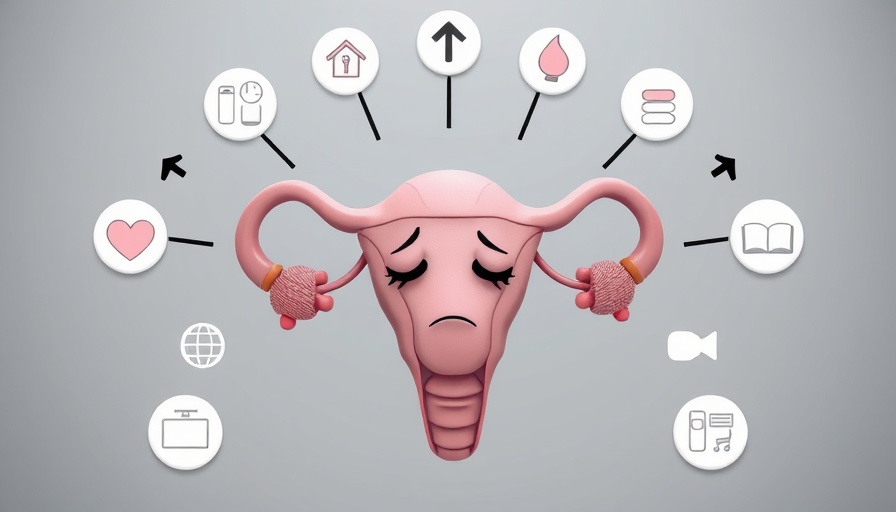
Understanding the Complex Layers of the Menstrual Cycle
The menstrual cycle is often simplified to a mere physiological process, yet its complexities encompass more than just the physical changes women experience. Elucidating the menstrual cycle not only requires a keen understanding of hormonal shifts but also an appreciation for the broader implications these changes have on a woman's overall well-being.
In 'What Really Happens During Your Period? Understanding the Menstrual Cycle Explained', the discussion dives into the complexities of the menstrual cycle, exploring key insights that sparked deeper analysis on our end.
Exploring the Hormonal Symphony
The menstrual cycle is orchestrated by a delicate balance of hormones, primarily estrogen and progesterone, which play vital roles at various stages of the cycle. Research indicates that estrogen peaks during the follicular phase, promoting tissue growth and mood elevation, while progesterone's surge prepares the body for potential pregnancy. These hormonal fluctuations often correlate with physical symptoms such as mood swings, cramps, and bloating, shedding light on the profound relationship between our endocrine system and emotions.
The Cultural Messaging Around Menstruation
Throughout history, menstruation has not been only a biological occurrence but also a cultural touchstone. Societal stigma has frequently shrouded menstruation, leading to the propagation of myths and misconceptions. The notion that menstruating women are cursed or impure has deep roots, persisting in many cultures worldwide. Understanding the cultural narrative around menstruation helps not only to destigmatize this natural process but also aids in creating a holistic approach to women's health that respects both cultural origins and modern scientific insights.
Common Misconceptions
A significant challenge in addressing menstrual health is overcoming prevalent misconceptions. One cannot ignore the myth that menstruation should be an experience of quiet suffering. In reality, while discomfort might be common, debilitating pain does not have to be part of a typical cycle. Engaging in informed conversations about menstrual pain and treatment options not only empowers women but also challenges healthcare practices that have historically relegated women's health concerns to the margins.
Pioneering Practices for Menstrual Health
With alternative health practices gaining traction, women are increasingly seeking avenues beyond traditional medicine to address menstrual issues. From yoga and acupuncture to herbal remedies, alternative practices offer various approaches to harmonizing bodily processes. These holistic strategies emphasize the importance of self-care and could empower women to take charge of their health narratives. There is a growing body of evidence supporting the efficacy of such methods, underscoring an essential shift in how we view and manage menstrual health.
The Importance of Education and Advocacy
Education plays a crucial role in advancing women's health. With many still navigating their menstrual cycles amidst pervasive misinformation, robust educational frameworks can provide crucial support. Comprehensive education around menstruation and reproductive health should be a staple in both public schools and private clinics. This not only fosters agency among girls and women but can also encourage a generation to challenge the injustices embedded within the healthcare system.
Framing the Discussion with Compassion
As we reflect on the various facets of menstruation, it becomes clear that understanding the menstrual cycle goes beyond the biological. Incorporating diverse perspectives and voices into the discourse around menstruation fosters a more inclusive dialogue, directly addressing real-world implications for mental health, social standing, and medical advocacy. In examining the narrative of menstruation, we must unravel the threads that bind biology to culture, breaking down barriers to create a more equitable healthcare landscape.
 Add Row
Add Row  Add
Add 



Write A Comment